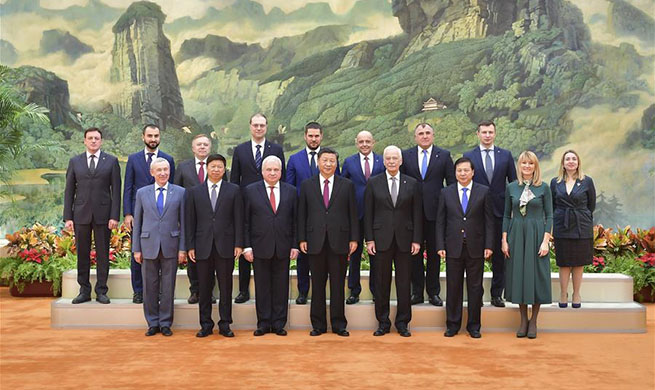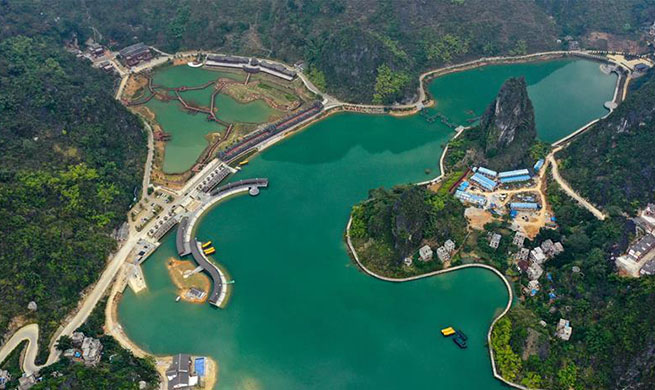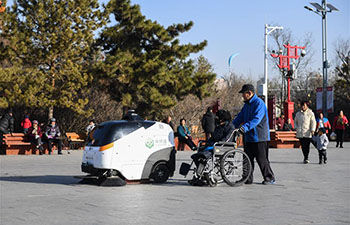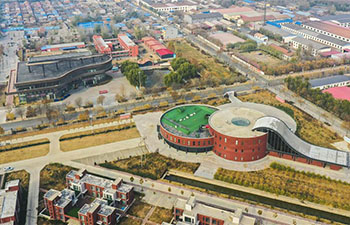BILBAO, Spain, Nov. 25 (Xinhua) -- Spain will be the focal point of the battle to protect our planet as the United Nations Climate Change Conference, also known as COP 25, is to be held in Madrid for two weeks starting Dec. 2.
That struggle, in fact, has been going on for a long time with companies such as AZTI at the forefront to help combat climate change and promote a sustainable use of food resources.
Based in the Zamudio Technology Park just outside of the city of Bilbao in the Basque region, north of Spain, AZTI is a non-profit private foundation for the public sector. It employs around 250 people and has over 300 clients in the food sector.
The company, founded in 1981, describes itself as a "specialized technology center of excellence... that conducts strategic and applied research to generate new knowledge."
Combating climate change is one of AZTI's main focus points along with sustainable fisheries management, the protection of an efficient marine ecosystem and the maintenance of an efficient and sustainable food chain -- all of which are linked to the need to stop the world overheating.
"Once a tipping point is reached, it is very difficult to reverse it," warned Adolfo Uriarte, research director at AZTI, at an event organized by AZTI along with the authorities in the Basque region.
He pointing out the the moral dilemma posed by climate change as developing nations look to stimulate their economies and attempt to raise living standards for their people.
Even in the Basque region - one of the most environmental-friendly parts of Spain, he noted, "our carbon footprint is 2.6 - which means if the levels of carbon we emitted was produced on a worldwide level, we'd need 2.6 planets."
Uriarte explained that one of the keys to helping reduce the food sector's CO2 emissions are for people to try and source food produced as close to their homes as possible.
"Kilometer zero. Why are you eating an orange here in Spain in July if it is out of season and has to come from South Africa, when in Spain at that time we have cherries or peaches that are in season?" he asked.
"We have to try and only eat seasonal produce," said Uriarte, adding "we need to move towards more ecologically produced food, with the use of few fertilizers and pesticides."
Referring to the recent massive die-off of fish in the Mar Menor in southeast Spain, he said it can be caused by the overuse of artificial fertilizer.
"They feed nutrients to crops and the water drains into the sea and starves it of oxygen," he added.
Uriarte highlighted the importance of oceans to the health of the planet.
"Fifty percent of the CO2 in the world is captured by plankton. If we do too much damage to the sea we risk losing that. We are killing the reservoirs that can capture CO2," he warned.
Uriarte was not optimistic that governments could find a solution to climate change, partly because the problem needs medium and long term answers, which are not supplied in a political system which often sees drastic policy changes every four years.
"We need to take action on a civil level. Politics is a four year establishment, then you often have a change of government... To combat climate change, we need a 15-20 or 30-year plan," he insisted.













